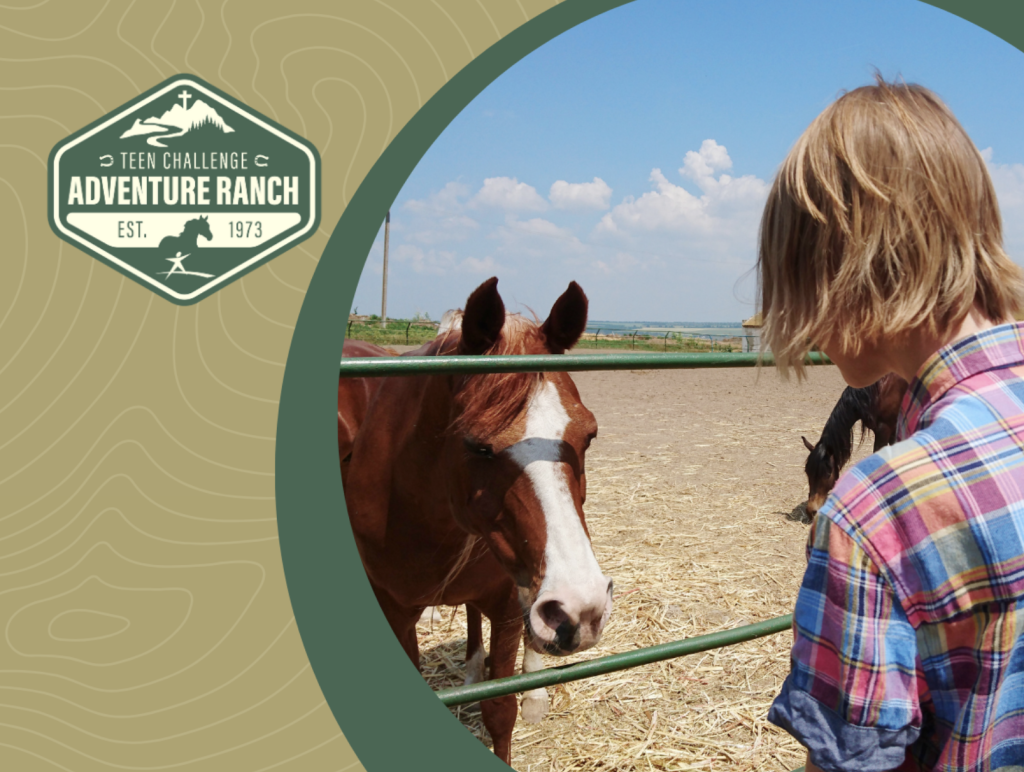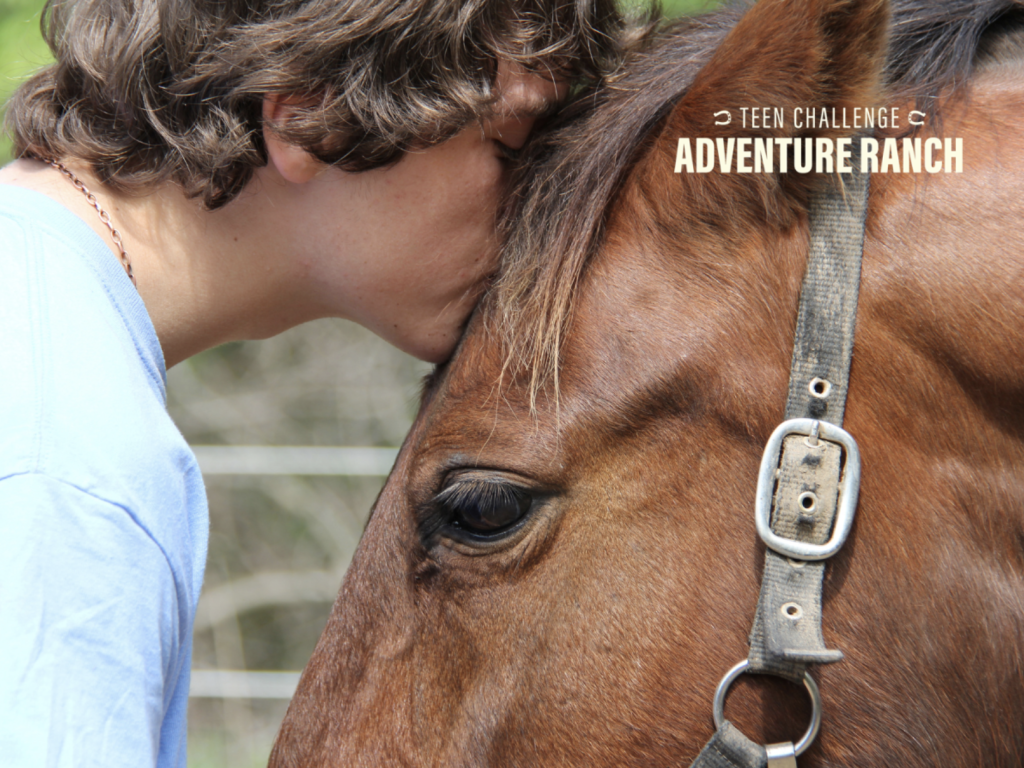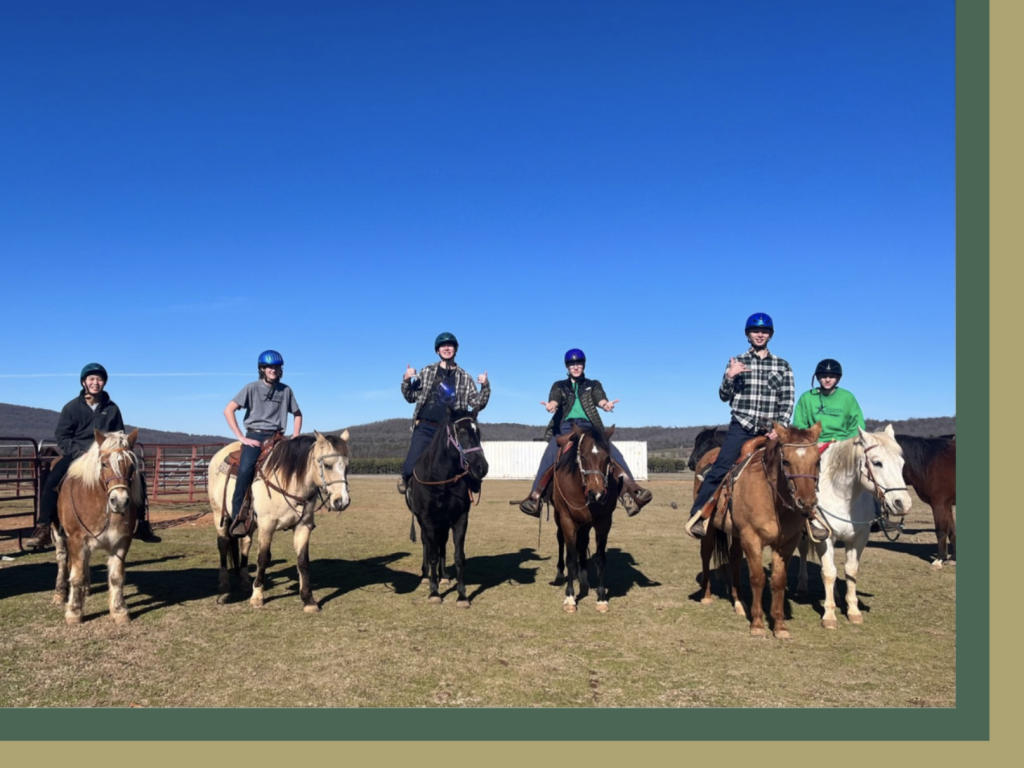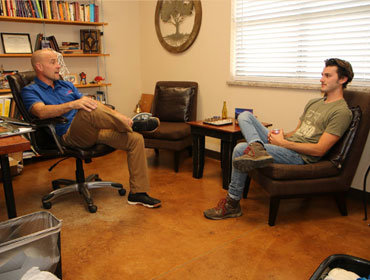Equine-assisted psychotherapy helps teens heal from depression, anxiety, and trauma-related conditions, serving as a complementary therapeutic tool alongside traditional clinical therapy methods.

The therapeutic value of horseback riding has been recognized since ancient times. As early as 600 BC, the Greeks documented the therapeutic value of riding. Hippocrates, often referred to as the “Father of Medicine,” wrote about the healing power of horse riding, setting the stage for exploring hippotherapy (or therapy with horses) as a clinical modality for psychiatric treatments.
Today, equine-assisted therapies have become a popular alternative treatment option for teens struggling with social and emotional challenges like anxiety, depression, and trauma-related diagnoses.
Could equine therapy be effective for your teen?
What is Equine Therapy?
Equine-assisted psychotherapy (EAP) is a form of therapy that involves interactions between patients and horses. These interactions typically occur in a stable, pasture, or other natural settings where horses are kept, providing a natural and serene backdrop for therapeutic interactions.
EAP can include:
- Grooming Horses
- Feeding and Caring for Horses
- Leading Horses Through Obstacles
- Riding Horses
- Observing Horse Behavior
- Practicing Non-Verbal Communication with Horses
Each of these activities offers a different therapeutic benefit. Depending on the therapy session’s goals and the therapy team’s role, equine-assisted therapeutic activities can be used for various purposes.
Understanding Equine Therapy for Teens
Equine therapy programs provide complementary treatment intended to be used in conjunction with other forms of treatment. This type of therapy aims to help individuals develop skills and attributes like emotional awareness and regulation, responsibility, confidence, self-esteem, and improved social skills.
The Connection Between Horses and Humans
Initially, horses were domesticated for practical purposes like transportation, agricultural work, and warfare. Over time, this relationship evolved beyond utility to include recreational and therapeutic dimensions.
Horses are highly sensitive and responsive to human behavior, body language, and emotions. They can pick up on subtle cues and react accordingly, encouraging humans to become more aware of their emotional state and non-verbal signals.
Horses often mirror the emotions and attitudes of the humans around them. This mirroring can provide insightful feedback for humans about their emotional state and behaviors, making horses excellent partners in therapeutic settings.
Building a relationship with a horse requires empathy, patience, and trust. Horses, being prey animals, are naturally cautious and must learn to trust humans. Building trust can be profoundly rewarding and therapeutic, teaching humans valuable lessons about respect, empathy, and building relationships.
How Horses Help Create a Unique Therapeutic Bond
Effective therapeutic treatment requires vulnerability, trust, respect, collaboration, genuineness, consistency, and reliability. All of this is established through a therapeutic relationship or therapeutic bond.
Failure to establish a therapeutic bond can be detrimental to the effectiveness of any therapeutic program. For individuals and teens who have struggled in therapy, horses can help facilitate a unique therapeutic bond that can be difficult to achieve in clinical therapy.
Horses provide a non-threatening and non-judgmental presence. Unlike humans, they do not have preconceived notions or biases based on a person’s history, appearance, or social status. This unconditional acceptance can be particularly healing for individuals who have faced judgment or stigmatization.
Research and Evidence Basis for the Use of Equine Therapy in Teens
Several studies have explored the impact of equine therapy (ET) on various psychological conditions with overwhelmingly positive impacts in support of using equine-assisted psychotherapy in conjunction with other treatment methods.
One study published in the Journal for Clinical Child Psychology and Psychiatry studied the use of equine-assisted psychotherapy for adolescents experiencing anxiety and/or depression. This study found a range of positive impacts or behavior changes and a correlation to a decrease in negative behaviors.
Another study using brain imaging showed changes in brain activity associated with stress reduction and emotional regulation in individuals after equine therapy sessions. This aligns with the theory that non-verbal communication and bonding with horses can activate parts of the brain involved in emotional processing.
Integrating Equine Therapy into a Comprehensive Treatment Plan
Equine-assisted therapy can complement traditional therapies and medical treatments, offering a holistic approach to mental health care. Equine therapy programs pair well with cognitive behavioral therapy treatments. While CBT helps teens understand and change negative thought patterns and behaviors, equine therapy provides a practical, experiential component to therapy.
For instance, a teen working on social anxiety might use CBT to challenge negative thoughts about social interactions and simultaneously engage in ET to practice these skills in a non-threatening environment.
For conditions like severe anxiety or depression, medication can be important but may not necessarily be effective as a standalone intervention. Equine therapy can complement medication by offering a space for emotional exploration and expression. It can help alleviate stress and improve mood, potentially enhancing the effectiveness of other treatments.
In cases dealing with trauma, equine therapy, alongside other modalities like EMDR (eye movement desensitization and reprocessing) or trauma-focused CBT, can provide a gentle, non-verbal approach to healing. The presence of horses can create a sense of safety and grounding, which can be essential for these teens.
Teen Challenge Adventure Ranch incorporates equine-assisted therapeutic activities into our regular curriculum. All students get to work with the horses through weekly sessions facilitated by our equine therapy team.
Our program is for teen boys, ages 14-17, struggling with life-controlling issues like substance abuse, addictions, mental health, and behavioral problems.
We provide a 9-month Christ-centered residential therapy program rooted in outdoor adventure and equine therapy on our ranch in Northwest Arkansas.
To learn more, talk with our admissions team.






